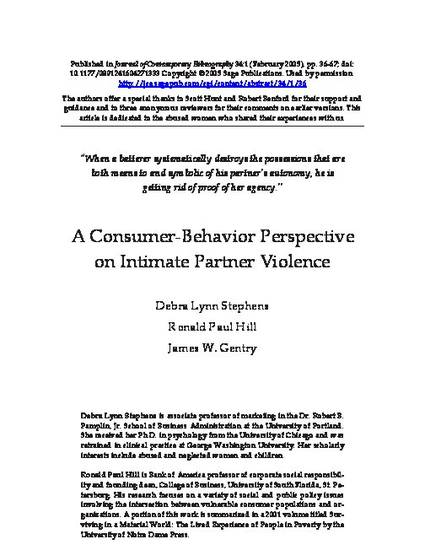
This research examines women’s experiences of and responses to intimate partner violence using the perspective of the extended self. From in-depth interviews with a demographically diverse group of women in the United States, the primary theme to emerge was that chronic abuse is experienced as the male partner’s ongoing campaign to incorporate the abused woman into his extended self, by appropriating or destroying the aspects of her that give her autonomy. The most important implication for agencies serving abused women is that many of their clients are faced with the daunting task of repairing or reconstructing their core and extended selves, a process that may necessitate the long-term commitment of agency resources without the imposition of restricted, institutionally imposed identities that would serve only to impede clients’ reclamation of their autonomy.
Available at: http://works.bepress.com/paul-hill/13/

Published in Journal of Contemporary Ethnography 34:1 (February 2005), pp. 36-67; doi: 10.1177/0891241604271333 Copyright © 2005 Sage Publications. Used by permission. Online at http://jce.sagepub.com/cgi/content/abstract/34/1/36